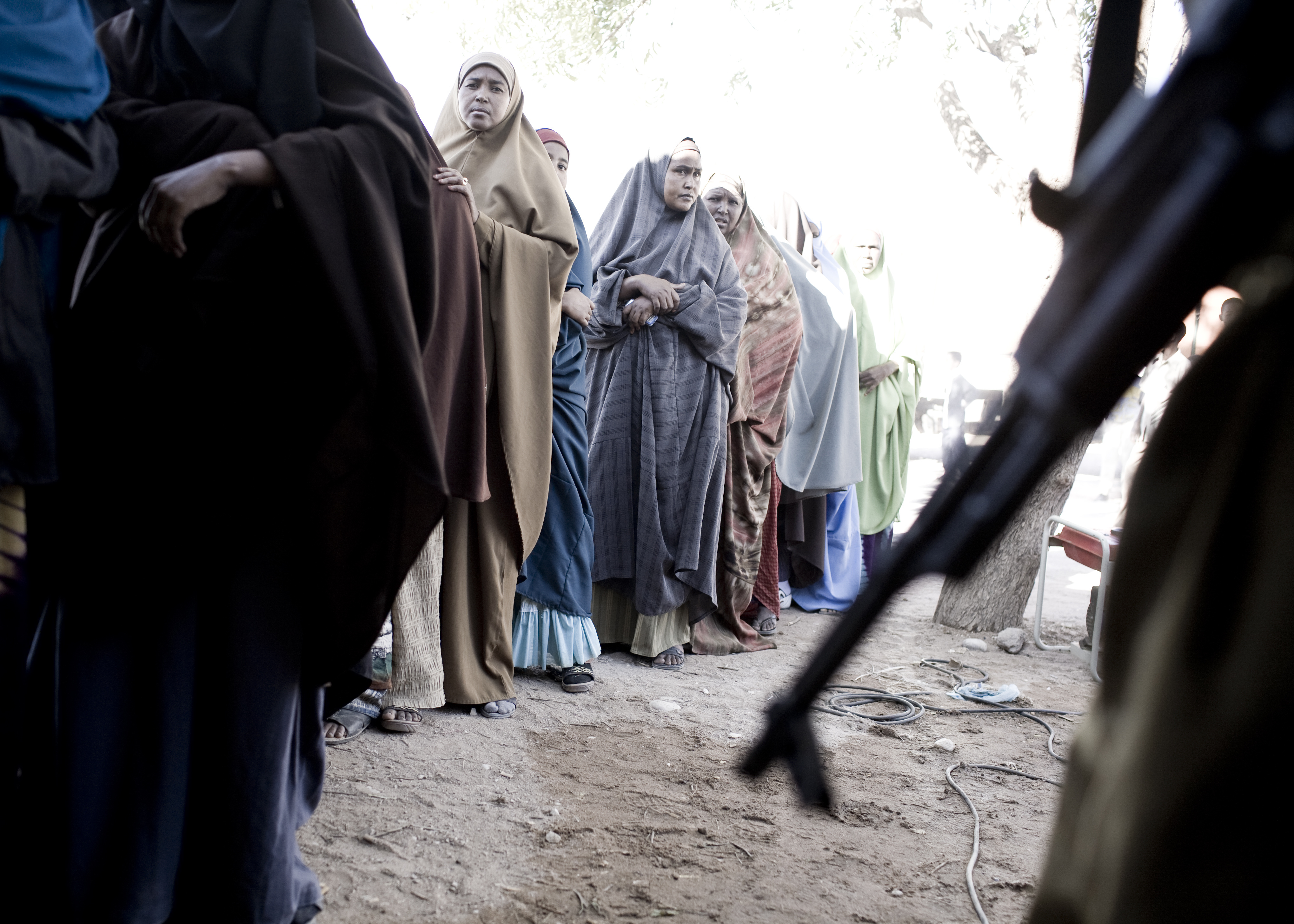
As the head of the Somali National Army’s Fifth Brigade in the 1980s, Colonel Yusuf Abdi Ali (nicknamed “Tukeh”) terrorized the Isaaq clan in the northwestern region of Somalia, known today as Somaliland. One of his torture victims was Farhan Warfaa. Decades later, CJA, on behalf of Farhan, fought to bring his torturer to justice in a U.S. federal court, and won.
In 2004, CJA and then pro bono co-counsel Cooley Godward LLP filed suit on behalf of Farhan Mohamoud Tani Warfaa, seeking to hold Colonel Yusuf Abdi Ali (nicknamed“Tukeh”) responsible for his crimes, including torture, extrajudicial killing, war crimes, and crimes against humanity. We aimed to hold Tukeh responsible both for his direct participation in human rights violations as well as for abuses committed by soldiers under his command in northern Somalia in the 1980s.The court administratively closed the case against Tukeh in 2007, pending determination of the foreign official immunity issues raised in Yousuf v. Samantar. The case was reopened in October 2011, only to be stayed a second time pending the Supreme Court’s decision in Kiobel v. Royal Dutch Petroleum Co. After lengthy delays, the court finally reopened the case on April 25, 2014.
After filing an amended complaint, Col. Tukeh’s defense filed a renewed motion to dismiss the case, claiming immunity, political question, and statute of limitations. The court dismissed all of Mr. Warfaa’s Alien Tort Statute (ATS) claims, including his mass atrocity claims for war crimes and crimes against humanity, on Kiobel grounds. At the same time, the court denied Col. Tukeh’s motion to dismiss our client’s Torture Victim Protection Act (TVPA) claims. Both parties appealed the judgment to the Fourth Circuit Court of Appeals.
On September 16, 2015, CJA and pro bono counsel presented oral argument before the Fourth Circuit, explaining that an individual’s residence in Virginia deeply touches and concerns the territory of the U.S. for Kiobel purposes: namely, that the perpetrator is only amenable to suit in the U.S. and the facts of this case match the long standing precedent developed by Filartiga v. Pena-Irala and its progeny, a case that has been met with approval by all three branches of government. In February 2016, the Fourth Circuit rejected Tukeh’s claim of foreign official immunity, affirming that torturers living in the United States must answer their victims in U.S. courts. Unfortunately, on separate grounds, the court affirmed the dismissal of Mr. Warfaa’s claims for war crimes and crimes against humanity under the ATS, finding that all injuries were inflicted in Somalia, and Tukeh’s post-conduct residency in the U.S. was not sufficient to displace the Kiobel presumption against extraterritorially. However, the decision left the torture and attempted extrajudicial killing claims, filed under the TVPA, intact.
On May 2, 2016, Tukeh filed a petition for certiorari before the Supreme Court, requesting reversal of the Fourth Circuit’s decision on immunity. CJA in turn filed a cross-petition requesting review of the lower court’s dismissal of the ATS claims. CJA and pro bono counsel presented arguments on both issues before the Solicitor General of the United States, explaining that Tukeh’s petition for certiorari should be denied because the State Department has not seen fit to suggest immunity for Tukeh, and that the nature of the acts are so egregious, that no court should see fit to apply immunity under the common law to dismiss Warfaa’s statutory right of action under the TVPA. In the alternative, should the Solicitor General recommend certiorari on the issue of immunity, CJA requested support on the cross-petition, arguing that unlike “mere corporate presence” in Kiobel, Tukeh’s permanent residency in Virginia deeply touches and concerns the U.S. Following this meeting, the Solicitor General recommended that the Supreme Court deny certiorari on the question of immunity as well as CJA’s cross petition on Kiobel. On June 26, 2017 the Supreme Court denied both petitions, leaving the Fourth Circuit’s decision intact.
On May 21, 2019, a Virginia jury found Colonel Tukeh responsible for Farhan’s torture, though it declined to find liability for Farhan’s attempted extrajudicial killing. The jury awarded Farhan, who was represented at trial by CJA and pro bono co-counsel DLA PIPER, $500,000 in damages, including $100,000 in punitive damages. After years of seeking accountability, our client finally got his day in court, and prevailed.